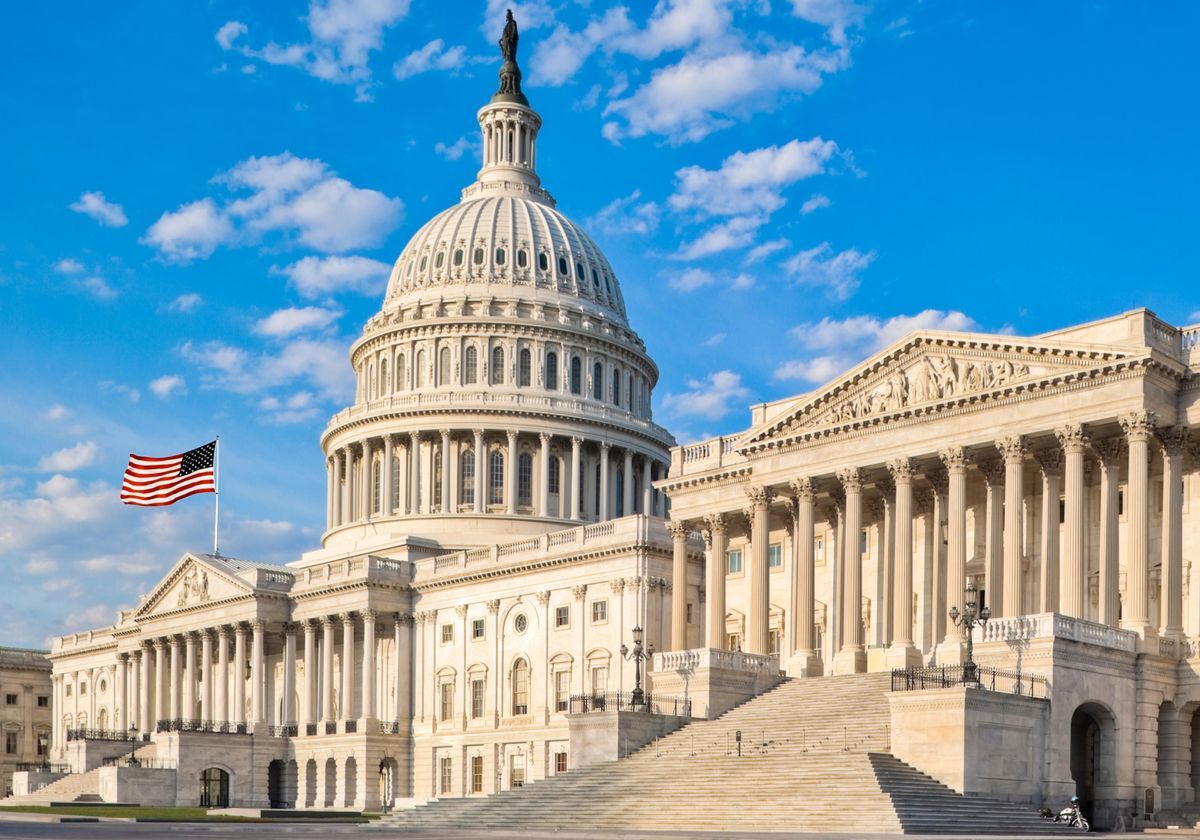U.S. Senate Moves Closer to Passing Landmark Stablecoin Legislation
17.06.2025 10:00 1 min. read Alexander Stefanov
A pivotal vote in the U.S. Senate could soon reshape how stablecoins are regulated, as lawmakers prepare to decide the fate of the GENIUS Act—a bill that’s been in negotiation for weeks.
The proposal would enforce strict requirements on issuers, mandate full dollar backing for stablecoins, and restrict large tech firms from entering the space unless they meet specific privacy and financial conditions.
After failing to gain traction initially due to Democratic objections, the bill has been amended to address concerns related to money laundering, foreign involvement, and the potential influence of political figures tied to crypto ventures. These updates helped the measure clear a key procedural vote with bipartisan support, paving the way for Tuesday’s final decision.
One controversial aspect remains the indirect involvement of President Trump, whose family is linked to World Liberty Financial—a firm behind a fast-growing stablecoin. While the bill avoids directly targeting the Trump family, new ethics clauses bar current government officials from issuing or holding large amounts of stablecoins without disclosure.
If the Senate approves GENIUS, the House may consider adopting it over its own version, the STABLE Act, which differs in approach to state-level frameworks and international oversight. Observers believe GENIUS is more likely to survive the legislative process due to its broader political backing and clearer regulatory scope.
-
1
Senate Confirms Crypto-Linked Nominee Jonathan Gould to Head OCC
11.07.2025 9:00 2 min. read -
2
South Korea Urges Asset Managers to Limit Exposure to Crypto Stock Like Coinbase,MicroStrategy
23.07.2025 10:00 1 min. read -
3
U.S. Regulators Define Crypto Custody Rules for Banks
15.07.2025 9:00 1 min. read -
4
Crypto Legislation Moves Forward Amid GOP Infighting Over CBDC Ban
17.07.2025 6:30 2 min. read -
5
Donald Trump to Unlock $9 trillion in Retirement Savings for Crypto and Gold Investments
18.07.2025 11:30 2 min. read
White House-backed Task Force Outlines Vision for Crypto Regulation
A coalition of U.S. federal agencies, formed under a January executive order by President Donald Trump, has released a fact sheet previewing its recommendations for a national digital asset framework.
Indonesia Triples Crypto Transaction Volume, Introduces New Tax Regime
Indonesia’s cryptocurrency sector saw explosive growth in 2024, with the total transaction value of crypto assets tripling year-on-year to over 650 trillion rupiah ($39.67 billion), according to data from the country’s financial regulator.
American Senator Introduces Bill to Count Crypto in Mortgage Eligibility
U.S. Senator Cynthia Lummis (R-Wyo.) has introduced the 21st Century Mortgage Act, a landmark bill that seeks to modernize federal home loan underwriting by including digital assets in mortgage eligibility assessments.
SEC Approves in-kind Creation and Redemption for Crypto ETPs, Marking Regulatory Shift
In a major development for the U.S. digital asset market, the Securities and Exchange Commission (SEC) has approved in-kind creation and redemption mechanisms for crypto asset exchange-traded products (ETPs), including those tied to Bitcoin and Ethereum.
-
1
Senate Confirms Crypto-Linked Nominee Jonathan Gould to Head OCC
11.07.2025 9:00 2 min. read -
2
South Korea Urges Asset Managers to Limit Exposure to Crypto Stock Like Coinbase,MicroStrategy
23.07.2025 10:00 1 min. read -
3
U.S. Regulators Define Crypto Custody Rules for Banks
15.07.2025 9:00 1 min. read -
4
Crypto Legislation Moves Forward Amid GOP Infighting Over CBDC Ban
17.07.2025 6:30 2 min. read -
5
Donald Trump to Unlock $9 trillion in Retirement Savings for Crypto and Gold Investments
18.07.2025 11:30 2 min. read


